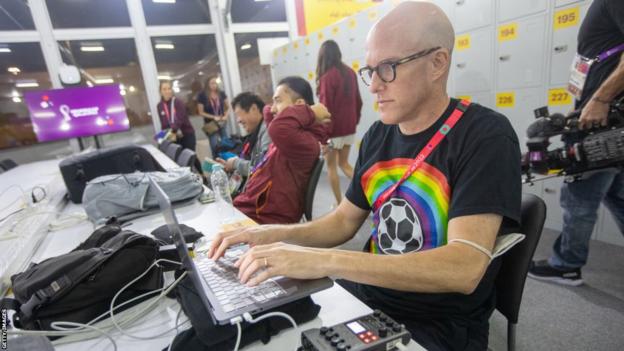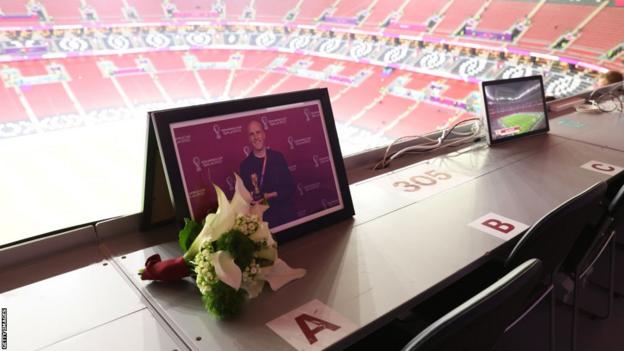This website uses cookies so that we can provide you with the best user experience possible. Cookie information is stored in your browser and performs functions such as recognising you when you return to our website and helping our team to understand which sections of the website you find most interesting and useful.

Grant Wahl died from a ruptured aortic aneurysm while working at the World Cup in Qatar, says his widow.
The journalist collapsed in a World Cup press box during the Argentina-Netherlands quarter-final on Friday.
The 48-year-old American had described feeling pressure in his chest in the days leading up to the game.
His wife Celine Gounder said an autopsy performed by the New York City Medical Examiner's Office concluded there was nothing untoward in his death.
"Grant died from the rupture of a slowly growing, undetected ascending aortic aneurysm with hemopericardium," she said on Wednesday.
A ruptured aortic aneurysm is when a bulge or swelling in the main artery that carries blood away from your heart tears, stopping blood being pumped around the body.
"The chest pressure he experienced shortly before his death may have represented the initial symptoms, " added Gounder, who is herself a doctor.
"No amount of CPR or shocks would have saved him. His death was unrelated to Covid. His death was unrelated to vaccination status.
"There was nothing nefarious about his death."
Gounder thanked the world of sport for the tributes to her late husband.
His death prompted messages from various leading figures in American sports, including some of the United States team he had been covering in Qatar.
"While the world knew Grant as a great journalist, we knew him as a man who approached the world with openness and love," Gounder added.
"Grant was an incredibly empathetic, dedicated, and loving husband, brother, uncle, and son who was our greatest team-mate and fan. We will forever cherish the gift of his life; to share his company was our greatest love and source of joy."
Earlier in the tournament Wahl said he was stopped from entering the United States' group match
against Wales because he was wearing a T-shirt in support of same-sex relationships, which are illegal in Qatar.
He had also accused Qatari organisers of apathy and indifference
over migrant worker deaths around the tournament. The rights and welfare of migrant workers in Qatar have been the focus of international criticism, with differing claims over the number of deaths.
Wahl wrote in the earlier part of last week that he had been to a hospital in Qatar and been told it was likely he had bronchitis.




 Africana55 Radio
Africana55 Radio 


